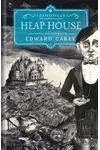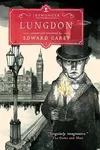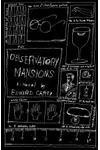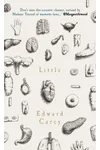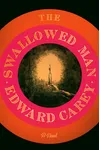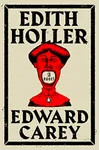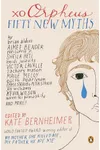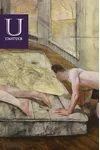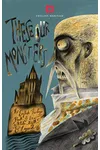Picture an English storyteller who spins quirky, fantastical worlds from heaps of forgotten objects—meet Edward Carey! Born in North Walsham, Norfolk, during an April snowstorm in 1970, Carey is a novelist, playwright, and illustrator whose vivid imagination has enchanted readers with works like the Iremonger Trilogy and Little. His stories, brimming with peculiar characters and environmental undertones, invite us into alternate realities where trash whispers and wax figures breathe.
The Making of Edward Carey
Growing up in a family with naval roots, Carey attended Pangbourne Nautical College but sidestepped the Royal Navy for a life in the arts. He joined the National Youth Theatre and earned a drama degree from the University of Hull in 1991. A stint at Madame Tussauds in London sparked his fascination with wax figures, later inspiring his novel Little. Carey’s global adventures—living in England, France, Romania, and beyond—shaped his eclectic storytelling, blending theater, illustration, and prose.
Edward Carey’s Unforgettable Stories
Carey’s Iremonger Trilogy—Heap House (2013), Foulsham (2014), and Lungdon (2015)—is a young adult masterpiece set in a grim, alternate Victorian London. The Iremonger family, rulers of vast trash heaps, cling to peculiar birth objects that whisper secrets. Clod Iremonger, who hears these objects speak, and orphan Lucy Pennant unravel dark family mysteries. Carey’s evocative illustrations, blending romanticism and German expressionism, bring this bizarre world to life. His novel Little (2018) traces the life of Marie Grosholtz, later Madame Tussaud, with a haunting blend of history and fantasy. Observatory Mansions (2000), his debut, explores a quirky apartment building’s residents, showcasing his knack for oddball characters. The Swallowed Man (2020) reimagines Pinocchio from Geppetto’s perspective, trapped inside a sea beast.
Carey’s style is a delightful mix of Dickensian whimsy, Lemony Snicket’s macabre humor, and Neil Gaiman’s fantastical depth. His environmental themes, especially in the Iremonger Trilogy, highlight the consequences of waste, urging readers to rethink our disposable culture. His illustrations, often contradicting the text, add a playful layer to his narratives, making each book a visual and literary adventure.
Why Edward Carey Matters
Edward Carey’s work resonates for its imaginative storytelling and environmental consciousness. The Iremonger Trilogy, lauded by The New York Times and Kirkus Reviews, has captivated young readers and adults alike, earning spots on best-of-the-year lists. His ability to weave theater, art, and literature into cohesive narratives sets him apart as a multifaceted creator. Carey’s stories remind us that even discarded objects—and overlooked voices—have tales worth telling, inspiring readers to find magic in the mundane.
- Born: April 1970, North Walsham, Norfolk, England
- Key Works: Iremonger Trilogy, Little, Observatory Mansions, The Swallowed Man
- Notable: Teaches at the University of Texas at Austin
Ready to tumble into Edward Carey’s whimsical worlds? Grab Heap House or Little and lose yourself in his quirky, illustrated tales!
